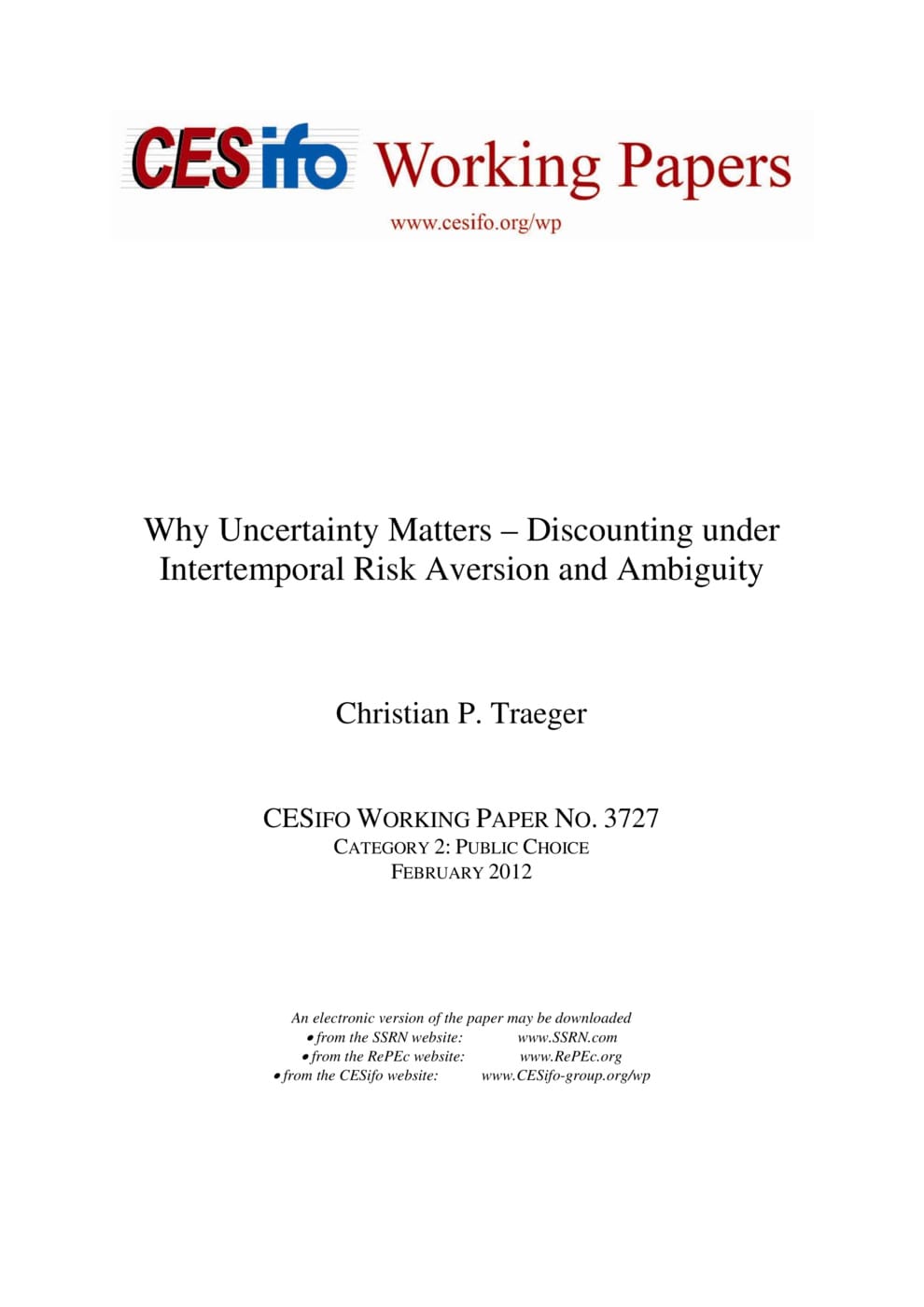Why Uncertainty Matters - Discounting under Intertemporal Risk Aversion and Ambiguity
CESifo, Munich, 2012
CESifo Working Paper No. 3727

Uncertainty has an almost negligible impact on project value in the economic standard model. I show that a comprehensive evaluation of uncertainty and uncertainty attitude changes this picture fundamentally. The analysis relies on the discount rate, which is the crucial determinant in balancing immediate costs against future benefits and the single most important determinant of optimal mitigation policies in the integrated assessment of climate change. The paper examines two shortcomings in the recent debate and the current models addressing climate change assessment. First, removing an implicit assumption of (intertemporal) risk neutrality reduces the growth effect in social discounting and significantly amplifies the importance of risk and correlation. Second, debate and models largely overlook the difference in attitude with respect to risk and with respect to non-risk uncertainty. The paper derives the resulting changes of the risk-free and the stochastic social discount rate and points out the importance of even thin tailed uncertainty for climate change evaluation. It discusses combinations of uncertainty and correlation that reduce the social discount rate to pure preference. In a theoretical contribution, the paper extends the smooth ambiguity model by providing a threefold disentanglement between, risk aversion, ambiguity aversion, and the propensity to smooth consumption over time.
Public Choice
Resources and Environment